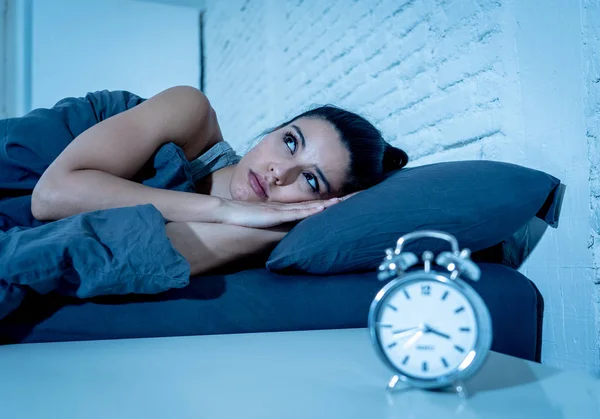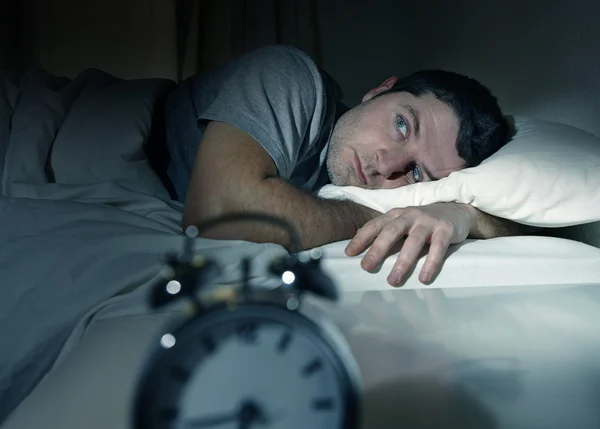
The importance of sleep for overall health
Sleep is often thought of as a luxury, something that can be sacrificed in the name of productivity or entertainment. But the truth is that sleep is one of the most crucial components of our overall health and well-being. In fact, it's been said that sleep is the third pillar of health, alongside diet and exercise.
According to the National Sleep Foundation, adults should aim for 7-9 hours of sleep per night. But unfortunately, many of us fall short of that goal. In fact, a recent study found that one in three Americans doesn't get enough sleep. And the consequences of sleep deprivation are serious. It can lead to a host of physical and mental health issues, including weight gain, decreased immune function, and an increased risk of chronic diseases like diabetes and heart disease.
But it's not all bad news. By prioritizing sleep and making some simple changes to our sleep habits, we can improve the quality and quantity of our sleep, and in turn, improve our overall health and well-being. In this article, we'll explore the many ways that sleep affects our physical and mental health, and provide tips and tricks for getting the sleep we need to thrive. So put down your phone, and let's get some rest!
The role of sleep in physical health

The role of sleep in physical health is often overlooked, but it is absolutely crucial for maintaining a healthy body. When we sleep, our bodies go into repair mode, working hard to repair and regenerate cells, tissues, and organs. This is why sleep is so important for everything from our skin to our muscles and bones.
One of the most important functions of sleep is its impact on our immune system. When we're sleep-deprived, our bodies produce less of the immune cells that fight off infections and illnesses. This can make us more susceptible to colds, flus, and other illnesses. In fact, studies have shown that people who sleep less than seven hours a night are three times more likely to develop a cold than those who sleep eight or more hours.
Sleep is also critical for maintaining a healthy metabolism. When we're sleep-deprived, our bodies produce more of the hormone ghrelin, which stimulates appetite, and less of the hormone leptin, which suppresses appetite. This can lead to weight gain, and an increased risk of obesity and diabetes.
Sleep also plays a key role in cardiovascular health. Studies have shown that people who don't get enough sleep are at an increased risk of high blood pressure, heart attack, and stroke. This is likely due to the fact that sleep deprivation causes the body to produce more of the stress hormone cortisol, which can increase blood pressure and heart rate.
In summary, sleep plays a vital role in our physical health, from repairing and regenerating cells to maintaining a healthy immune system, metabolism, and cardiovascular system. So, next time you're tempted to sacrifice your sleep for a late-night Netflix binge or an early morning workout, remember that your body needs rest to function at its best.
The role of sleep in mental health

Just as sleep plays a crucial role in physical health, it also plays a vital role in our mental health. The relationship between sleep and mental health is a two-way street, with poor sleep often leading to mental health issues and vice versa.
One of the most important functions of sleep is its impact on our brain's ability to process information and consolidate memories. When we sleep, our brain is busy organizing and consolidating the information we've taken in during the day. This is why a good night's sleep is essential for learning and memory formation. Studies have shown that people who don't get enough sleep have a harder time remembering things and have a more difficult time learning new information.
Sleep also plays a key role in regulating our emotions and mood. When we're sleep-deprived, our brains produce more of the stress hormone cortisol, which can lead to feelings of anxiety and irritability. Studies have also found that people who don't get enough sleep are more likely to develop depression and other mood disorders.
Another important aspect of sleep is its impact on our ability to regulate our emotions, which is why lack of sleep can lead to mood swings, irritability, and even depression. Moreover, sleep is also linked with our ability to cope with stress, which is why people who are sleep-deprived are more likely to experience anxiety and panic attacks.
In summary, the role of sleep in mental health is paramount, it's essential for our ability to process information, consolidate memories, regulate emotions and mood, and cope with stress. So, if you want to take care of your mental health, make sure you're getting enough sleep. Because a good night's sleep can do wonders for your mind and mood.
The link between sleep and chronic diseases 

The link between sleep and chronic diseases is a topic that has been the subject of much research in recent years, and the findings are clear: sleep deprivation increases the risk of developing a wide range of chronic diseases.
One of the most well-known links is between sleep and obesity. Studies have shown that people who don't get enough sleep are more likely to be overweight or obese. This is likely due to the fact that sleep deprivation alters the balance of hormones that control appetite, leading to increased hunger and cravings for high-calorie foods.
The link between sleep and diabetes is also well-established. Studies have found that people who sleep less than six hours a night are at an increased risk of developing type 2 diabetes. This is likely due to the fact that sleep deprivation can lead to insulin resistance, a key factor in the development of diabetes.
Sleep also plays a role in cardiovascular health. Studies have found that people who don't get enough sleep are at an increased risk of high blood pressure, heart attack, and stroke. This is likely due to the fact that sleep deprivation causes the body to produce more of the stress hormone cortisol, which can increase blood pressure and heart rate.
In addition to the above, sleep deprivation has been linked to other chronic diseases such as cancer, Alzheimer's, and depression.
In summary, the link between sleep and chronic diseases is undeniable, lack of sleep can increase the risk of developing a wide range of chronic diseases such as obesity, diabetes, and cardiovascular diseases, as well as other chronic diseases such as cancer, Alzheimer's, and depression. So, if you want to lower your risk of chronic diseases, make sure you're getting enough sleep. A good night's sleep is not just a luxury, it's a necessity for good health.
The impact of sleep on athletic performance

The impact of sleep on athletic performance is often overlooked, but it is crucial for anyone who wants to perform at their best. Sleep plays a vital role in the body's ability to recover from physical activity and improve athletic performance.
One of the most important functions of sleep is its impact on muscle recovery and growth. When we sleep, our bodies release growth hormone, which is essential for muscle repair and growth. Studies have found that people who don't get enough sleep have a harder time building muscle and recovering from workouts.
Sleep also plays a key role in endurance performance. Studies have found that people who don't get enough sleep have a harder time maintaining their endurance during long-duration activities such as running, cycling, or swimming. This is likely due to the fact that sleep deprivation can lead to fatigue and decreased motivation.
In addition to the above, sleep also plays a role in reaction time, coordination, and overall cognitive function, which is important for athletes who need to make quick decisions on the field or court.
Moreover, sleep is also linked to injury prevention, lack of sleep can lead to fatigue, which can increase the risk of injury during physical activity.
In summary, the impact of sleep on athletic performance is undeniable, it's essential for muscle recovery and growth, endurance performance, reaction time, coordination, and overall cognitive function. So, if you want to perform at your best, make sure you're getting enough sleep. Because a good night's sleep is not just a luxury, it's a necessity for peak performance.
Sleep disorders and their effects 

Sleep disorders are a common problem that affects many people, and they can have serious consequences on our health and well-being. Some of the most common sleep disorders include insomnia, sleep apnea, and restless leg syndrome, each with their own set of causes, symptoms, and treatment options.
Insomnia is the most common sleep disorder and is characterized by difficulty falling asleep or staying asleep. It can be caused by a variety of factors, including stress, anxiety, and certain medications. Symptoms of insomnia include fatigue, irritability, and difficulty concentrating. Insomnia can be treated with a combination of lifestyle changes, such as relaxation techniques and sleep hygiene, and medications such as sleeping pills.
Sleep apnea is a serious sleep disorder characterized by repeated episodes of stopped breathing during sleep. It can be caused by obesity, smoking, alcohol use, and certain medications. Symptoms of sleep apnea include loud snoring, choking or gasping during sleep, and daytime fatigue. Treatment for sleep apnea includes weight loss, avoiding alcohol and smoking, and the use of a continuous positive airway pressure (CPAP) machine.
Restless leg syndrome (RLS) is a disorder characterized by an uncontrollable urge to move the legs, often accompanied by uncomfortable sensations. It can be caused by iron deficiency, kidney failure, or certain medications. Symptoms of RLS include difficulty falling asleep and staying asleep, as well as daytime fatigue. Treatment for RLS includes lifestyle changes such as regular exercise, avoiding caffeine, and iron supplements in case of iron deficiency.
In summary, sleep disorders are a common problem that can have serious consequences on our health and well-being. Some of the most common sleep disorders include insomnia, sleep apnea, and restless leg syndrome, each with their own set of causes, symptoms, and treatment options. If you suspect you have a sleep disorder, it's important to see a healthcare professional to get a proper diagnosis and treatment plan.
The effects of technology on sleep

Technology has revolutionized the way we live, but it has also had a significant impact on the way we sleep. The use of electronic devices, blue light exposure and social media can affect sleep quality and quantity, leading to a host of sleep-related problems.
One of the most significant effects of technology on sleep is the exposure to blue light emitted from electronic devices. Blue light suppresses the production of melatonin, the hormone that regulates our sleep-wake cycle, making it harder to fall asleep. Studies have found that people who use electronic devices before bed have a harder time falling asleep and staying asleep.
Another way technology affects sleep is by keeping us mentally stimulated and engaged, which makes it harder to relax and fall asleep. Social media, online games, and streaming services can keep our minds active and alert, making it difficult to switch off and unwind.
Furthermore, technology can also disrupt our natural sleep-wake cycle by exposing us to artificial light, noise, and distraction at night, which can make it harder to fall asleep and stay asleep.
In summary, technology has revolutionized the way we live, but it has also had a significant impact on the way we sleep. The use of electronic devices, blue light exposure, and social media can affect sleep quality and quantity, leading to a host of sleep-related problems. To minimize the effects of technology on sleep, it's important to establish a digital sunset, meaning to set a time to stop using electronic devices before bed, and create a relaxing bedtime routine to help you unwind and fall asleep.
Sleep hygiene tips and tricks

Sleep hygiene refers to the habits and practices that promote good sleep, and there are many tips and tricks that you can use to improve your sleep hygiene and get the restful sleep you need.
One of the most important things you can do for your sleep hygiene is to establish a consistent sleep schedule. This means going to bed and waking up at the same time every day, even on weekends. This helps to regulate your body's internal clock and makes it easier to fall asleep and wake up.
Creating a relaxing bedtime routine is another important aspect of sleep hygiene. This can include activities such as reading a book, taking a warm bath, or practicing relaxation techniques like yoga or meditation. This helps to signal to your body that it's time to wind down and prepare for sleep.
Another important aspect of sleep hygiene is to create a comfortable sleep environment. This means keeping your bedroom cool, dark, and quiet, and investing in a comfortable mattress and pillows.
Avoiding stimulating activities before bedtime is also key for good sleep hygiene. This means avoiding caffeine, nicotine, and alcohol close to bedtime and avoiding the use of electronic devices for at least an hour before bed.
Physical activity during the day is also important for good sleep hygiene, as it can help to tire you out and make it easier to fall asleep at night.
In summary, sleep hygiene is a set of habits and practices that promote good sleep, there are many tips and tricks that you can use to improve your sleep hygiene such as, establish a consistent sleep schedule, create a relaxing bedtime routine, create a comfortable sleep environment, avoid stimulating activities before bedtime, and get enough physical activity during the day. By implementing these tips, you can improve the quality and quantity of your sleep, and in turn, improve your overall health and well-being.
The role of diet and lifestyle on sleep

The role of diet and lifestyle on sleep is often overlooked, but it is essential for anyone who wants to get the restful sleep they need. What we eat and how we live our lives can have a significant impact on the quality and quantity of our sleep.
One of the most important aspects of diet and lifestyle on sleep is to maintain a healthy diet. Eating a diet rich in fruits, vegetables, and whole grains, and low in processed foods, sugar, and caffeine can help to regulate our body's internal clock and make it easier to fall asleep and stay asleep. Eating a balanced diet can also help to keep our weight in check, which is important for sleep as obesity is linked to sleep disorders such as sleep apnea.
Regular physical activity is also essential for good sleep. Exercise can help to tire us out, making it easier to fall asleep and stay asleep. However, it's important to note that intense exercise should be avoided close to bedtime as it can stimulate the body and make it harder to fall asleep.
Stress management is another important aspect of lifestyle on sleep. Stress can lead to insomnia, and other sleep disorders, practices such as yoga, meditation, and deep breathing can help to reduce stress and improve sleep.
Another important aspect of lifestyle on sleep is to avoid alcohol, nicotine, and caffeine close to bedtime. These substances can disrupt the quality of sleep, leading to insomnia and other sleep disorders.
In summary, the role of diet and lifestyle on sleep is essential, a healthy diet, regular physical activity, stress management, and avoiding alcohol, nicotine, and caffeine close to bedtime can help to improve the quality and quantity of our sleep. By making these small changes to our diet and lifestyle, we can improve our sleep and in turn, improve our overall health and well-being.
Conclusion
In conclusion, sleep is an essential component of our overall health and well-being. It plays a crucial role in our physical and mental health, and a lack of sleep can lead to a host of physical and mental health issues. The importance of sleep is undeniable, from repairing and regenerating cells to maintaining a healthy immune system, metabolism, and cardiovascular system, to processing information, consolidating memories, regulating emotions and mood, coping with stress, and athletic performance.
There are many things we can do to improve the quality and quantity of our sleep, from establishing a consistent sleep schedule, creating a relaxing bedtime routine, creating a comfortable sleep environment, avoiding stimulating activities before bedtime, getting enough physical activity during the day, and maintaining a healthy diet, regular physical activity, stress management and avoiding alcohol, nicotine, and caffeine close to bedtime.
Sleep disorders are a common problem that can have serious consequences on our health and well-being, it's important to see a healthcare professional to get a proper diagnosis and treatment plan.
In summary, sleep is essential to our overall health and well-being, and by making small changes to our diet and lifestyle, we can improve the quality and quantity of our sleep, and in turn, improve our overall health and well-being. So, let's put down our phones, and get some rest!
The importance of sleep for overall health
 Reviewed by jadan
on
January 20, 2023
Rating:
Reviewed by jadan
on
January 20, 2023
Rating:
 Reviewed by jadan
on
January 20, 2023
Rating:
Reviewed by jadan
on
January 20, 2023
Rating:




No comments: